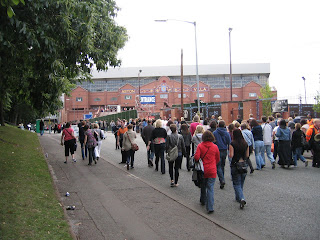The St James Advice and Community Centre has a
new name; it is now called CAN DO 4:13. The new name refers to the Letter of
Saint Paul to the Philippians, chapter 4, verse 13: “There is nothing I cannot
do in the One who strengthens me.”
The new new name does not mean that the Centre
is full of confidence and making a new start. It rather means that the Centre
acknowledges that it needs lots of help from Above in order to survive and to overcome
its difficulties.
Funding is at the heart of the problem. In the course of its long existence of over
thirty years the Centre had become more dependent on the financial support it
received from Birmingham City Council, roughly
75%, but this source of funds has now dried up. There had been some hope that a new
application would be favourably received. It involved moving away from advice on
migration matters to advice on debt problems, as the Council demanded, but this
change was not enough to get a slice of the new funding.
The Centre is still operating but at much
lower levels of activity. It involved the painful process of making some staff
members redundant and giving debt advice training to the remaining ones.
Will the Centre survive? The change of name is
intended to make this possible. It makes of the Centre a charity in its own right,
no longer under the umbrella of the
Parish of Aston. It is hoped that this change makes it easier for foundations
and trusts to contribute to the funding of the Centre, especially those that
shy away from religious institutions. After all the Centre makes a social
contribution, even though the motive behind it is that of Christian service.
Ton










